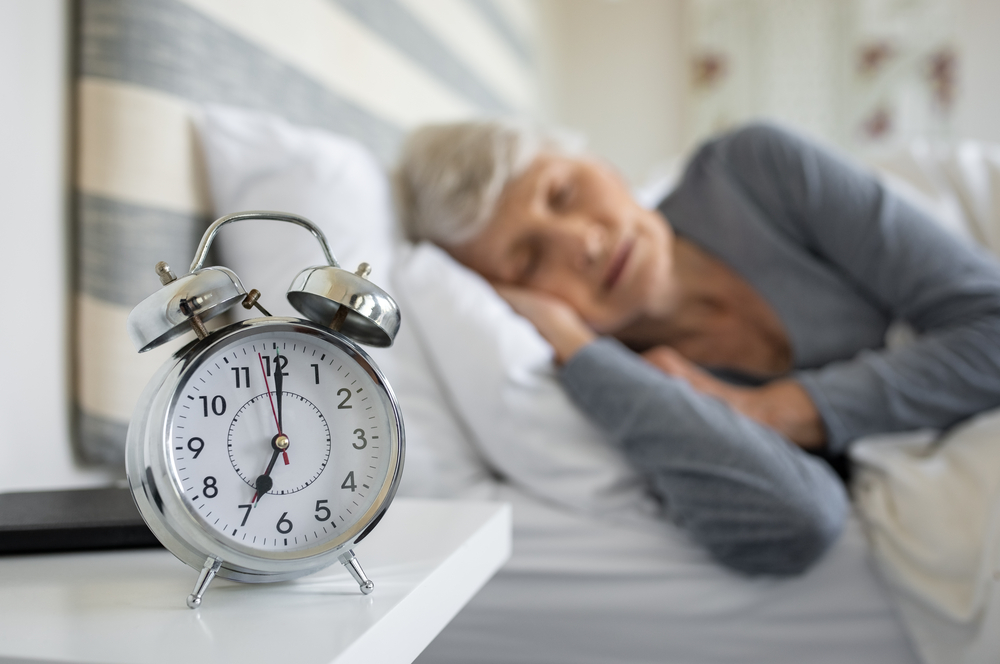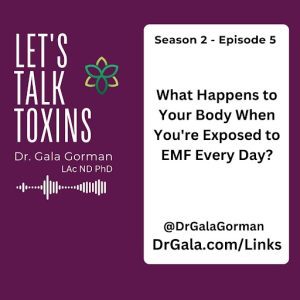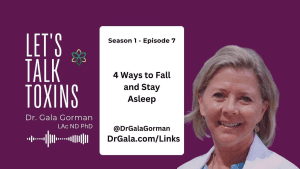Insomnia for women in midlife is often triggered by hormonal changes, like fluctuating estrogen and progesterone levels, particularly during menopause. Stress, anxiety, and certain lifestyle factors may also intensify insomnia.
It’s challenging, but restoring sound sleep is achievable. Getting to know the changes your body is undergoing can help you reclaim control over your sleep health.
There are effective strategies to handle these shifts.
Dr. Gala’s Quick Take
Insomnia for females in midlife can be primarily caused by hormonal changes, especially during menopause, and is often exacerbated by stress and anxiety. Understanding these triggers and adopting appropriate lifestyle tweaks can help manage and improve sleep disturbances.
What Causes Insomnia in Women?

If you’re a woman in midlife dealing with insomnia, know that you’re not alone. Hormonal changes, menopause, stress, and worry can all significantly contribute to sleep disturbances.
Let’s explore the causes of insomnia so that you can take the first steps towards improved sleep and well-being.
Impact of Hormonal Changes
Navigating the choppy waters of hormonal changes in midlife, you may notice your sleep often being disrupted, leading to insomnia. This is a frequent hurdle, as hormonal transitions can jumble your body’s natural sleep process. The oscillating estrogen and progesterone levels during this phase can cause sleep disturbances.
In particular, a decrease in progesterone can result in insomnia, while an estrogen drop can add to other sleep issues. Remember, your hormonal changes are natural, but they don’t have to rule your life.
You have the ability to enhance your sleep despite these transitions.
Menopause and Sleep
As you journey through midlife, menopause appears as another significant factor that can greatly affect your sleep quality and lead to insomnia. Hormonal changes, especially the decrease in estrogen levels, can spark bothersome symptoms like hot flashes and night sweats.
These disruptive physical sensations can deprive you of a good night’s sleep, causing you to wake up repeatedly. Moreover, mood symptoms like anxiety or depression often emerge, further unsettling your sleep patterns.
Keep in mind, many women face similar challenges. Understanding these changes is the first step towards regaining control. Rally your inner strength to overcome insomnia during menopause.
Stress-Induced Sleep Disruptions
During the trials of midlife, it’s quite usual for women to struggle with sleep disturbances triggered by stress, leading to insomnia. Heightened stress can stimulate the production of cortisol, making it hard to relax and sleep.
There are effective methods to deal with persistent stress, a common associate of midlife women that interferes with your sleep cycle. Don’t let this add to your worries. There is a solution.
Midlife Anxiety Effects
As you navigate through midlife, it’s not uncommon to experience a surge of anxiety that disrupts your sleep and results in insomnia. Anxiety during midlife can stir up a whirlwind of thoughts and an increased state of alertness lingering to bedtime, leading to sleep disturbances.
Hormonal changes, notably during menopause, can amplify these feelings of unease and further interrupt sleep routines. These factors, coupled with life stresses, make midlife women especially prone to insomnia. Effective therapy can help to manage anxiety and enhance sleep quality.
Lifestyle Adjustments to Improve Sleep
Understanding the role of anxiety in sleep disruption is your starting point towards reclaiming peaceful nights, and it’s equally important to realize the significant influence of lifestyle adjustments on managing insomnia in midlife women.
Keeping a consistent sleep schedule and cultivating a soothing bedtime routine can greatly lessen insomnia symptoms. Regular physical activity can enhance sleep quality. And creating a sleep-friendly environment increases your chances of a good night’s rest.
Be aware of your caffeine and alcohol consumption, especially near bedtime, as they can intensify insomnia. Your lifestyle choices have a deep effect on your sleep. Take charge, and welcome these adjustments for improved sleep and a more confident you.
What are the different types of insomnia?

Now, let’s explore the different types of insomnia that could be impacting your sleep.
It’s important to understand the difference between Primary and Secondary Insomnia, as well as the distinction between Acute and Chronic Insomnia.
You’ll also find it beneficial to differentiate between Sleep Onset and Maintenance Insomnia.
Primary vs Secondary Insomnia
When it comes to managing insomnia in your midlife years, it’s crucial to recognize that there are two main types: primary and secondary insomnia. Primary insomnia is an independent disorder, not sparked by other health conditions. This type could be lifelong or initiated by changes in routine or stressful events.
Conversely, secondary insomnia often ties to chronic insomnia, with elements like health problems or medication side effects leading to sleep disturbances. Both variants can significantly influence your sleep quality and overall health.
Acute and Chronic Insomnia
If you’re wrestling with either acute or chronic insomnia during your midlife years, you’re certainly not alone.
Recognizing the difference between these two types can be the initial move towards regaining your peaceful nights. Acute insomnia is often sparked by stress or significant life events and should be a temporary sleep disruption that usually resolves once the instigating factors are tackled.
Conversely, chronic insomnia is a long-term problem, leading to sleep disruptions and daytime difficulties for at least three nights a week for three months or longer. Midlife women dealing with chronic insomnia must take the problem seriously. Sleep is non-negotiable.
Sleep Onset vs Maintenance
In the world of insomnia, it’s key to understand that not all sleepless nights are equal; some middle-aged women may have trouble falling asleep at the start of the night, known as sleep onset insomnia, while others might find themselves frequently waking up, unable to return to sleep – a condition known as maintenance insomnia. Hormonal changes and stress may worsen both types.
Determining if you’re dealing with sleep onset or maintenance insomnia will help you regain control. By understanding your specific type, you can effectively customize your treatment strategies. You can manage stress, adjust lifestyle habits, and seek professional help if required.
How does insomnia affect women’s health?

Insomnia can certainly and significantly impact a woman’s health in multiple ways. Consistent sleep disturbances can lead to a higher risk of mishaps, diabetes, high blood pressure, and falls. Long-term insomnia may heighten your chances of developing mood disorders, heart disease, stroke, and obesity.
Insomnia can worsen existing health conditions and raise your risk of experiencing new ones. Cognitive issues, emotional instability, and a decreased quality of life are all potential consequences of chronic insomnia. Keep in mind, your overall health is deeply connected to the quality of your sleep.
It’s essential to address insomnia directly. Neglecting it won’t make it disappear; rather, it may deteriorate your physical and mental health.

How is insomnia treated?
Navigating insomnia may feel daunting, but there are natural treatment routes available to help you regain your night’s rest.
Sleep medication should be a last resort due to its risks and side effects. It’s better to make lifestyle tweaks and master stress-diminishing techniques.
Sleep Medication and Risks
Sleep medications may seem like a quick solution, but it’s essential to be mindful of the possible side effects and long-term risks.
With knowledge, you can make enlightened choices about your health.
Understanding Sleep Medications
Navigating the complex world of sleep medications, it’s essential to comprehend that treatments like benzodiazepines, non-benzodiazepines, and sedative-hypnotics can provide relief from insomnia, but they’re not without their potential issues.
Potential Side Effects
While getting to know sleep medications is a crucial first step, it’s equally important to familiarize yourself with the potential side effects and risks associated with these treatments for insomnia, particularly for women in midlife.
Research the possible risks and side effects of extended usage. The knowledge to make informed decisions about sleep medication will safeguard your health and well-being.
Long-term Effects of Sleep Medication
When thinking about long-term answers for insomnia, it’s key to comprehend the possible dangers and side effects of sleep medication. Extended use can result in tolerance and reliance, making it more challenging for you to sleep without it.
And, sudden discontinuation may trigger a return of insomnia.

Lifestyle Adjustments for Sleep
There are several lifestyle changes you can embrace to tackle insomnia and enhance your sleep quality during this challenging midlife phase.
Begin by establishing a consistent sleep schedule, going to bed, and waking up at the same time each day. This routine aids in tuning your body’s internal clock or circadian rhythms.
To create a healthy, consistent sleep routine, align your sleeping time with your natural circadian rhythms. Ideally, this is between 11 PM and 5 AM.
Circadian rhythms are crucial for your body’s rest and repair processes. Aim to get into bed between 10 and 10:30 PM. This gives you ample time to wind down and ensures you are soundly asleep by 11 PM.
If you wake up after 5:00 AM, get up and ease into your day. Don’t try to go back to sleep. This conditions you to feel tired in the evening and makes maintaining your sleep routine easy.
Establish a calming bedtime routine, like reading or listening to soothing music. And stay away from stimulants like caffeine near bedtime. Include relaxation methods, like deep breathing or meditation, to unwind.
Lastly, create a sleep-friendly environment. Your bedroom should be dark, quiet, and cool, with comfy bedding. By taking charge of your sleep environment and habits, you’re investing in your well-being, empowering yourself to conquer insomnia.
Stress-Reducing Techniques
To fight sleeplessness during these transitional years, you can use a variety of stress-relieving techniques, like cognitive-behavioral therapy, relaxation exercises, and mindfulness meditation.
Cognitive-behavioral therapy can help you manage the negative thought patterns that might be interfering with your sleep, enabling you to develop healthier habits.
You might also consider relaxation exercises like deep breathing or progressive muscle relaxation before bedtime to help your mind and body relax. I developed a yoga nidra meditation that I close my nidra movement class with it’s included in the MOLT Method™ Program.
Mindfulness meditation can be especially effective in soothing your mind, reducing anxiety and enhancing relaxation.
With regular use, these stress-relieving techniques can significantly lessen your sleeplessness symptoms and enhance your overall sleep quality. Remember, you have the ability to improve your sleep and boost your quality of life.
Hormonal Influence on Sleep
While stress-reducing techniques are beneficial, we shouldn’t underestimate the influence of hormonal changes on your sleep patterns during midlife. Handling these effectively can also lessen insomnia symptoms. Your hormone levels, particularly estrogen, shift during this time, leading to sleep disruptions.
Our adrenal glands help to regulate hormones when we transition through menopause. Stress directly affects our adrenal gland reserves.
But there’s strength in knowledge. You’re not helpless against these changes. Hormone replacement therapy (HRT) can help to balance your hormonal levels, easing menopausal symptoms, and in turn, improving sleep.
HRT isn’t without its side effects. It should be considered as a short-term ‘Last Resort’.
Managing hormonal influences on sleep isn’t just about addressing insomnia; it’s about restoring your well-being. Remember, you have the power to influence your sleep health in midlife.
Natural Remedies for Insomnia
If you have wondered how you can naturally tackle insomnia during your midlife transition, there are several natural solutions available that will help.
Regular exercise, yoga, and acupuncture are confirmed methods to help manage insomnia for women during midlife. Cognitive-behavioral therapy for insomnia (CBT-I) is another effective drug-free option.
Understanding the triggers of your insomnia, such as menopause, hormonal shifts, or stress, is a critical step in crafting a treatment plan. It’s crucial to review your sleep patterns and examine your other menopausal symptoms for cures to solve the sleep disturbance mystery.
With the right knowledge and resources, you can overcome insomnia.
What You Can Do To Sleep Better Naturally

Navigating through the complexities of insomnia, you’ll discover that there are natural, effective strategies you can embrace to boost your sleep quality and overall well-being. As a woman facing midlife insomnia, setting a regular sleep schedule is crucial. This habit will aid in synchronizing your body’s internal clock, simplifying the process of falling asleep and waking up at the same times each day.
I mentioned this above but it bears repeating. Our body is ‘hardwired to sleep between 11 PM and 5 AM.
Craft a soothing bedtime routine to signal to your body that it’s time to sleep. This could include reading, enjoying peaceful music, or practicing a relaxation technique like deep breathing or progressive muscle relaxation. These techniques not only promote a tranquil transition into sleep, but they also lessen stress, a common factor in insomnia.
Take control of your sleep environment. Make sure it’s conducive to rest with a plush mattress, supportive pillows, and a room that’s cool, dark, and quiet. A peaceful environment can significantly enhance your sleep quality.
Key Takeaways
- Hormonal shifts during midlife, especially changes in estrogen and progesterone, can disturb sleep, resulting in insomnia.
- Stress and anxiety, often amplified during midlife due to life transitions, can disrupt sleep rhythms, leading to insomnia.
- Signs of menopause like hot flashes, anxiety, and depression can interrupt sleep, leading to sleeplessness.
- Lifestyle elements, like inconsistent sleep schedules, stress, and using stimulants like caffeine and alcohol close to bedtime, can worsen insomnia.
- Chronic insomnia in midlife women may also be due to ongoing health problems or the use of certain medications.
Conclusion
By recognizing what’s triggering your sleep troubles and implementing lifestyle changes, you can regain your tranquil nights. Don’t allow insomnia to characterize your midlife. You have the resilience and tools to overcome it.
Here’s to serene nights and lively, revitalized days. Prioritize sleeping soundly. You’re worth it.
“If you came into my office, I’d ask you a lot of questions that would help us connect the dots … so that together we can deal with your toxic stress.
Every situation is unique and you need a plan that works for you. Not a one-size-fits-all solution.
If you’re thinking you can’t come into my office, don’t worry. I’ve created a program with all of my initial recommendations to help you unravel the mystery. You can use it at home and at your convenience.
So if you’re thinking that managing chronic stress just isn’t possible … or even the answer … for you, I want to show you what you may be missing.
And how you can identify the toxic stressors that are creating your symptoms with my Human Energy System Reboot. You can get started HERE.” – Dr. Gala












